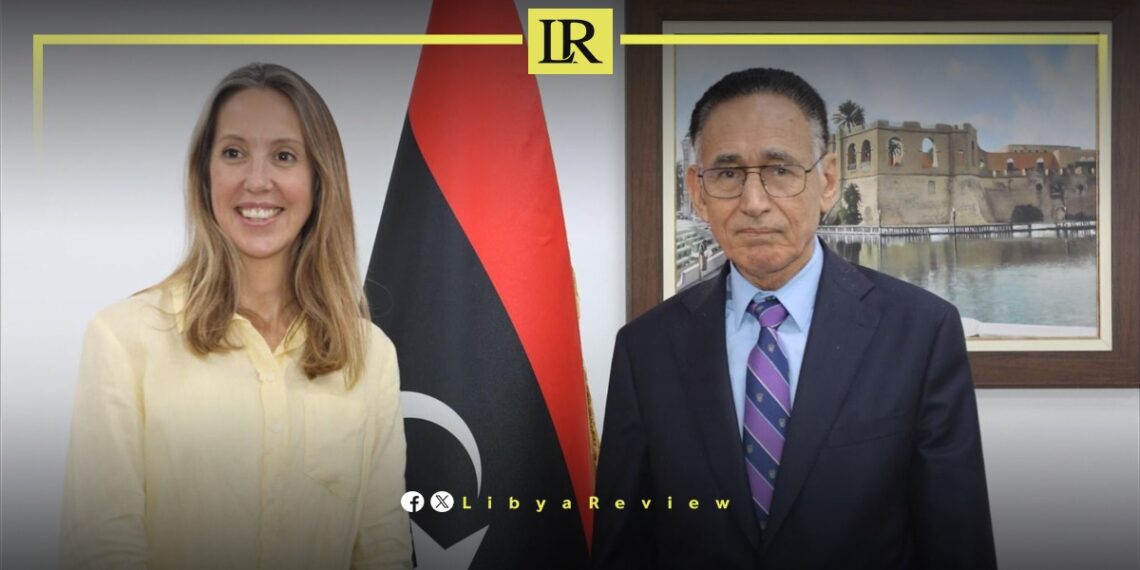On Saturday, Libya’s Ministry of Economy and Trade of the Government of National Unity (GNU), announced a significant collaboration with the U.S. Agency for International Development (USAID) to support small and medium-sized enterprises (SMEs) in southern Libya. The partnership includes a 2 million dinar grant to Saraya Bank to fund these initiatives.
The announcement came after a meeting between Libya’s Minister of Economy and Trade, Mohamed Al-Hwaij, and Michelle Bradford, Director of the USAID-funded Libya Economic Acceleration Project. The minister’s advisor, Shatha Al-Sayed, was also in attendance.
The U.S. Embassy in Libya highlighted the importance of this partnership, aimed at financing small projects in the southern region. USAID has been actively engaging with local authorities to support entrepreneurial ventures.
The Ministry of Economy and Trade stated that the agreement’s implementation will begin in July, with USAID providing technical support and Saraya Bank handling the financial disbursement. Bradford mentioned that discussions with the Central Bank of Libya have also led to the selection of Wahda Bank and Sahara Bank to finance additional projects in the south.
Minister Al-Hwaij was briefed on the objectives of the Libya Economic Acceleration Project, which aims to provide technical support for SMEs and create training programs to develop entrepreneurial ideas through both banking and non-banking financial tools.
These efforts are supervised by the Central Bank of Libya and other relevant sectors. Al-Hwaij called for enhanced cooperation between the ministry and project managers to identify target projects and regions, emphasizing the need to support and develop SMEs in the south to spur economic growth and create job opportunities.
This agreement is part of a broader effort to revitalize Libya’s economy, particularly in the underdeveloped southern regions. These areas have faced significant economic challenges due to years of conflict and instability. The financial support aims to stimulate local economies, foster entrepreneurship, and provide much-needed employment opportunities.
Libya’s economy has been severely affected by ongoing political turmoil and conflict since the fall of the Gaddafi regime in 2011. This instability has disrupted economic activities and infrastructure development, especially in the south. The government’s focus on SMEs is a strategic move to diversify the economy, reduce reliance on oil revenues, and empower local communities.
USAID has been actively involved in supporting Libya’s economic development through various projects aimed at building institutional capacities, enhancing economic governance, and fostering inclusive growth. The Libya Economic Acceleration Project is a key initiative providing comprehensive support to SMEs, including technical assistance, training, and access to finance.


